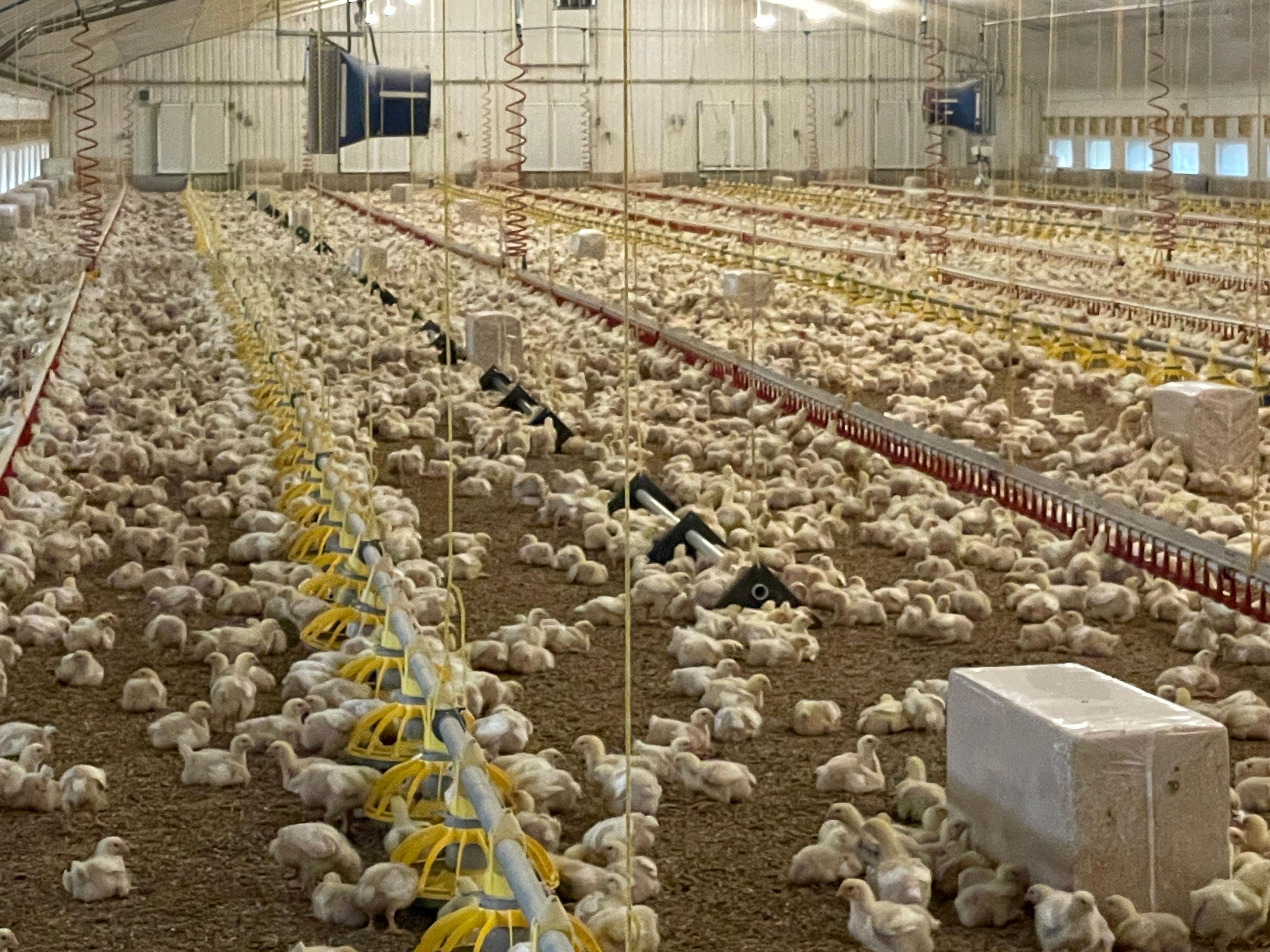Judge to decide chicken farm river complaints
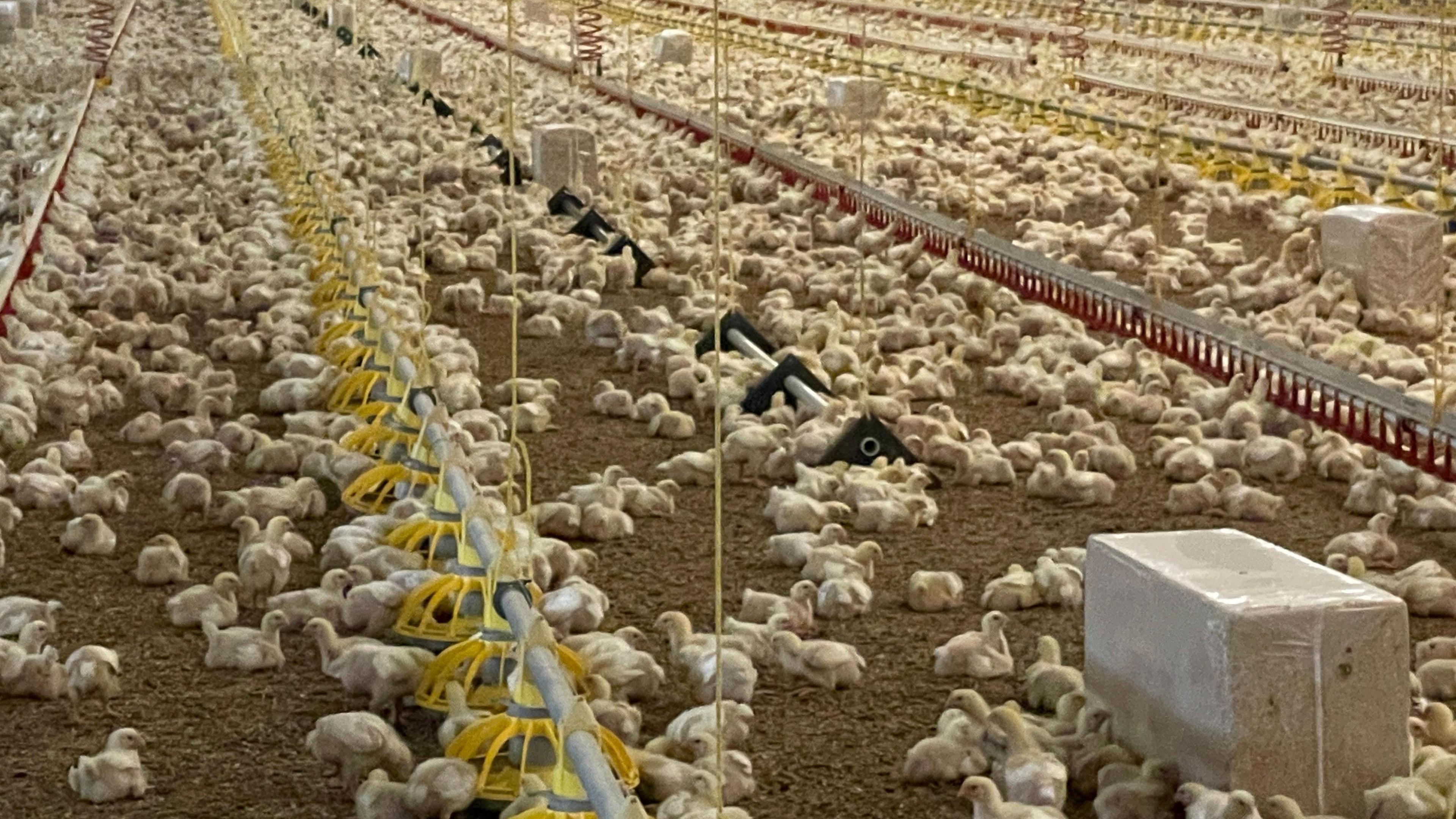
An estimated 20 million birds are being farmed in Shropshire at any time of the year, according to experts
- Published
A planning row over plans to build an industrial-scale chicken farm in a county will be the subject of a High Court judicial review from Wednesday.
Scientist Dr Alison Caffyn says Shropshire Council has failed to consider the impact that such large poultry sheds could have on the River Severn and the local environment.
The council said it took technical advice from the Environment Agency and Natural England before planning permission was granted.
The review will be held over two days at the Cardiff Justice Centre but the judge is not expected to reach a decision until the autumn.
"There are now 60 to 70 chickens for every single person that lives in Shropshire and that's too many," Dr Caffyn said.
"There's more manure coming from industrial agriculture than comes from the human population.
"It's running off the land and polluting our rivers."
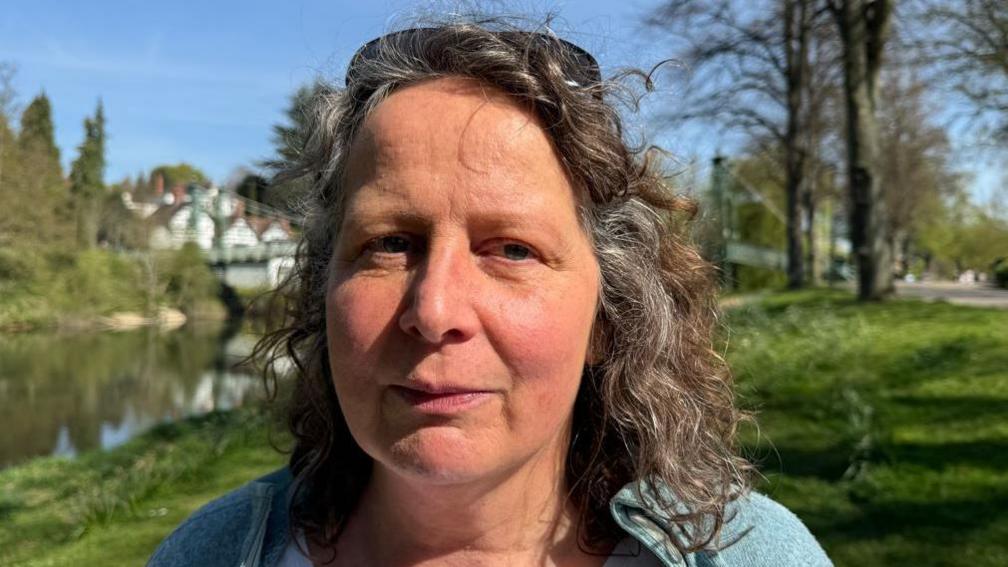
Dr Caffyn is a member of the environmental campaign charity River Action
The plans, submitted by farmers LJ Cooke and Son, are for four sheds at Felton Butler, near Shrewsbury, which would house up to 200,000 birds at any one time.
Initially the application was refused by Shropshire Council because of worries about air pollution and manure.
The plans were revised to include filters to remove ammonia and the condition that all manure has to be taken off site and used to generate energy - or sold as fertiliser elsewhere.
The authority then granted permission in May 2024.
A spokesperson for the council said the application included detailed assessments of the likely impacts of the sheds on the environment and they got technical advice from the Environment Agency and Natural England.
Great Ness and Little Ness Parish Council now supports the revised plans as long as the impact on the environment is monitored and a spokesperson said the sheds would provide long-term employment for a local business.
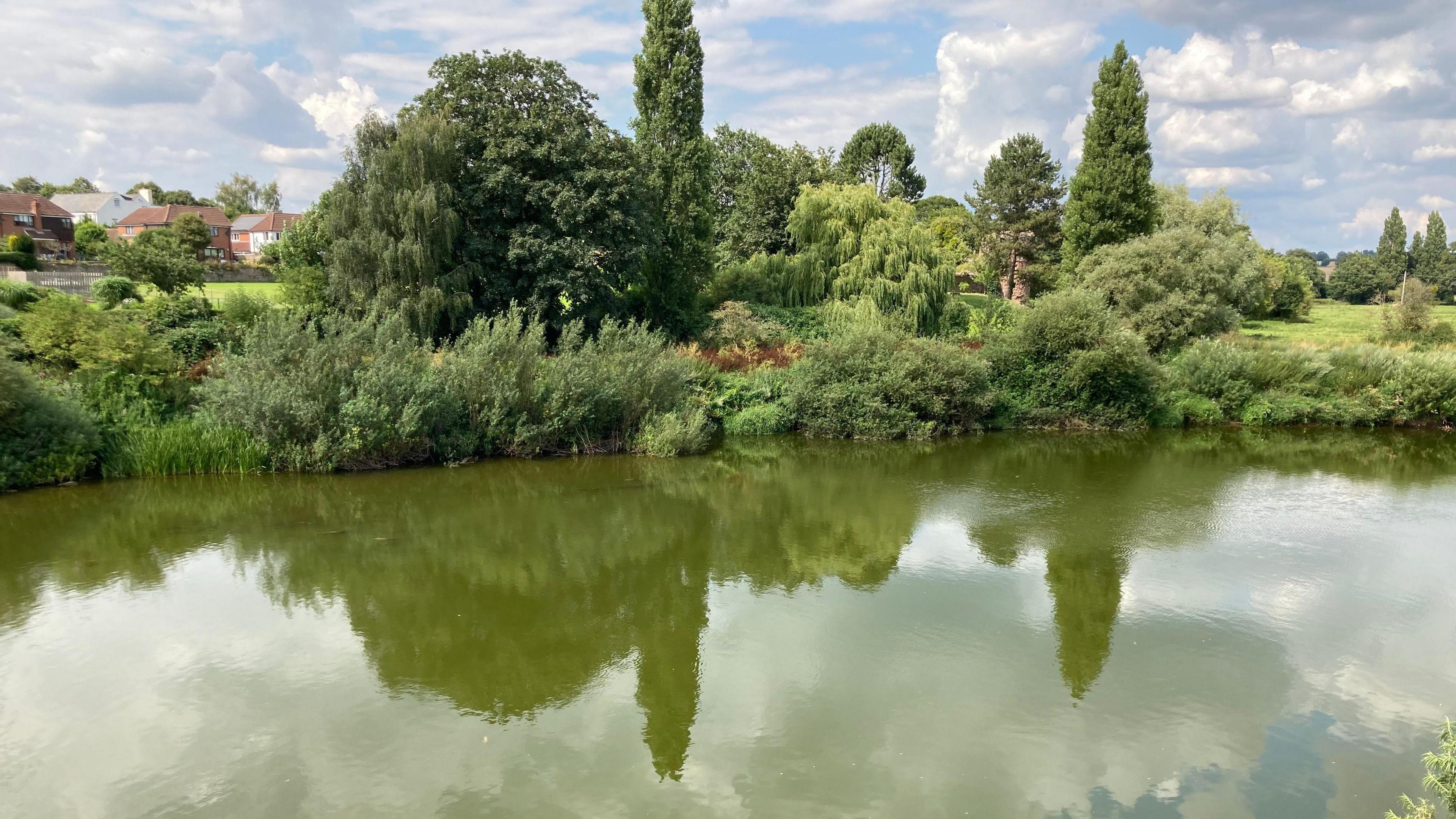
Scientists say more than 70% of the phosphate in the River Wye comes from agriculture
Chicken manure can be used as fertiliser on farmland to help crops to grow but, when it rains, it can run into streams and rivers.
The phosphate and nitrate contained in the manure can cause algae to grow which can starve plants of oxygen and cause the water to turn green.
Campaigners and academics say it has been a problem on the River Wye, affecting protected species such as salmon, otters and kingfishers.
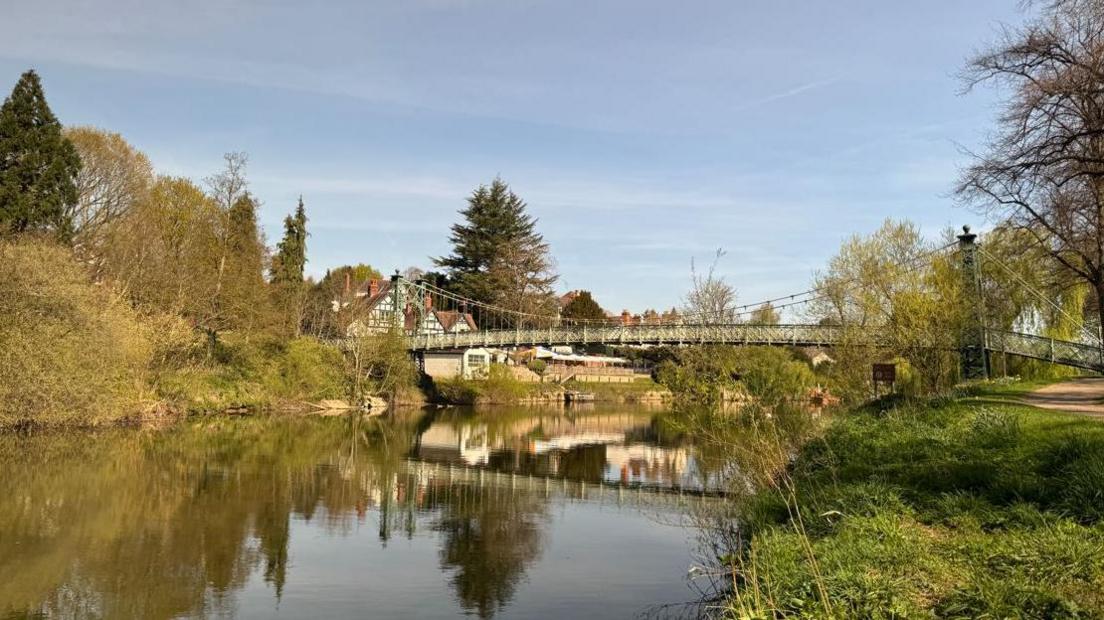
Campaigners are concerned about the possible impact of the plans on the River Severn
A judicial review is a court hearing in which a judge decides if a decision made by a public body, such as a council, was lawful or not.
This case will cover four points.
Dr Caffyn is claiming Shropshire Council failed to assess the effects of spreading and burning chicken manure and failed to impose planning conditions to prevent groundwater pollution.
Together with campaign group River Action, she also said the authority failed to make sure the chicken sheds would not affect a protected habitat and that they also breached national habitat regulations.
The council disputes the allegations.
The authority has faced three previous judicial review legal hearings after granting planning permission to other industrial chicken farms.
They have lost or conceded all three of the cases.
"I don't take any great pleasure in taking legal action against the local authority but you've got to take a stand at some point," said Dr Caffyn.
"I think there's there are lots of people who are paying council tax to Shropshire Council who'd like to see them get their house in order over this issue."
The farmer behind the plans has been approached for a response about the review. He previously told the BBC he did not want to comment.
Get in touch
Tell us which stories we should cover in Shropshire
Follow BBC Shropshire on BBC Sounds, Facebook, external, X, external and Instagram, external.
- Published7 November 2023
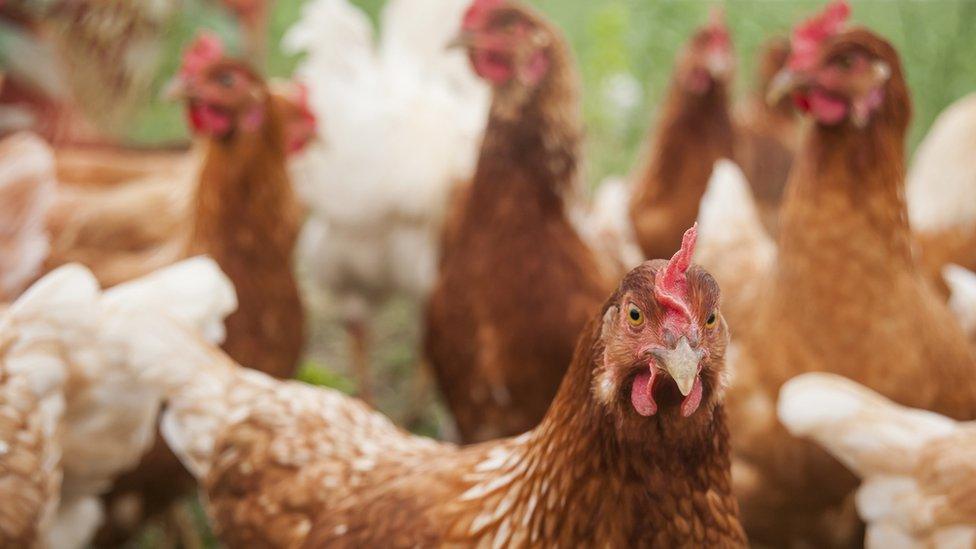
- Published8 May 2024
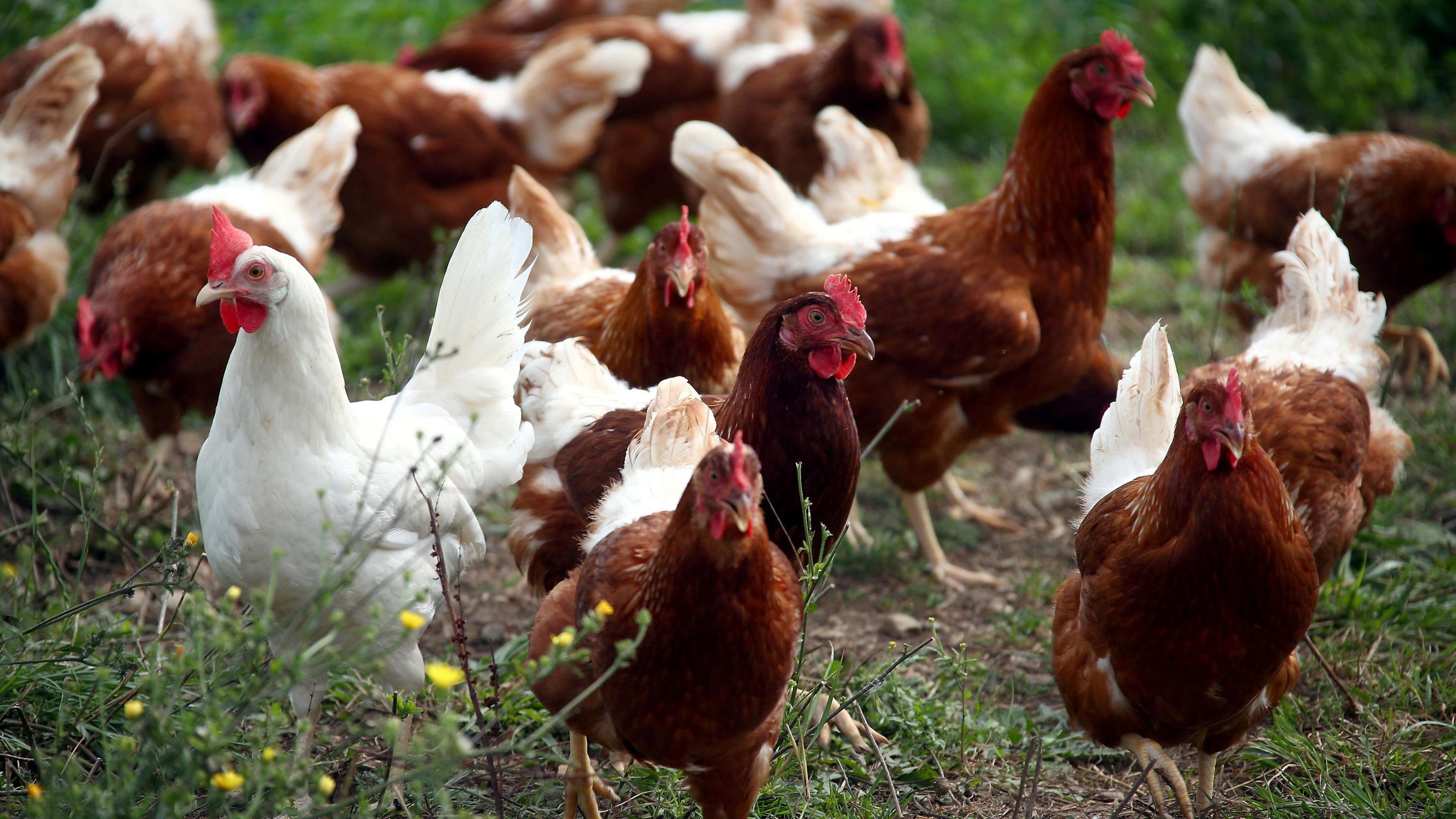
- Published13 May 2024
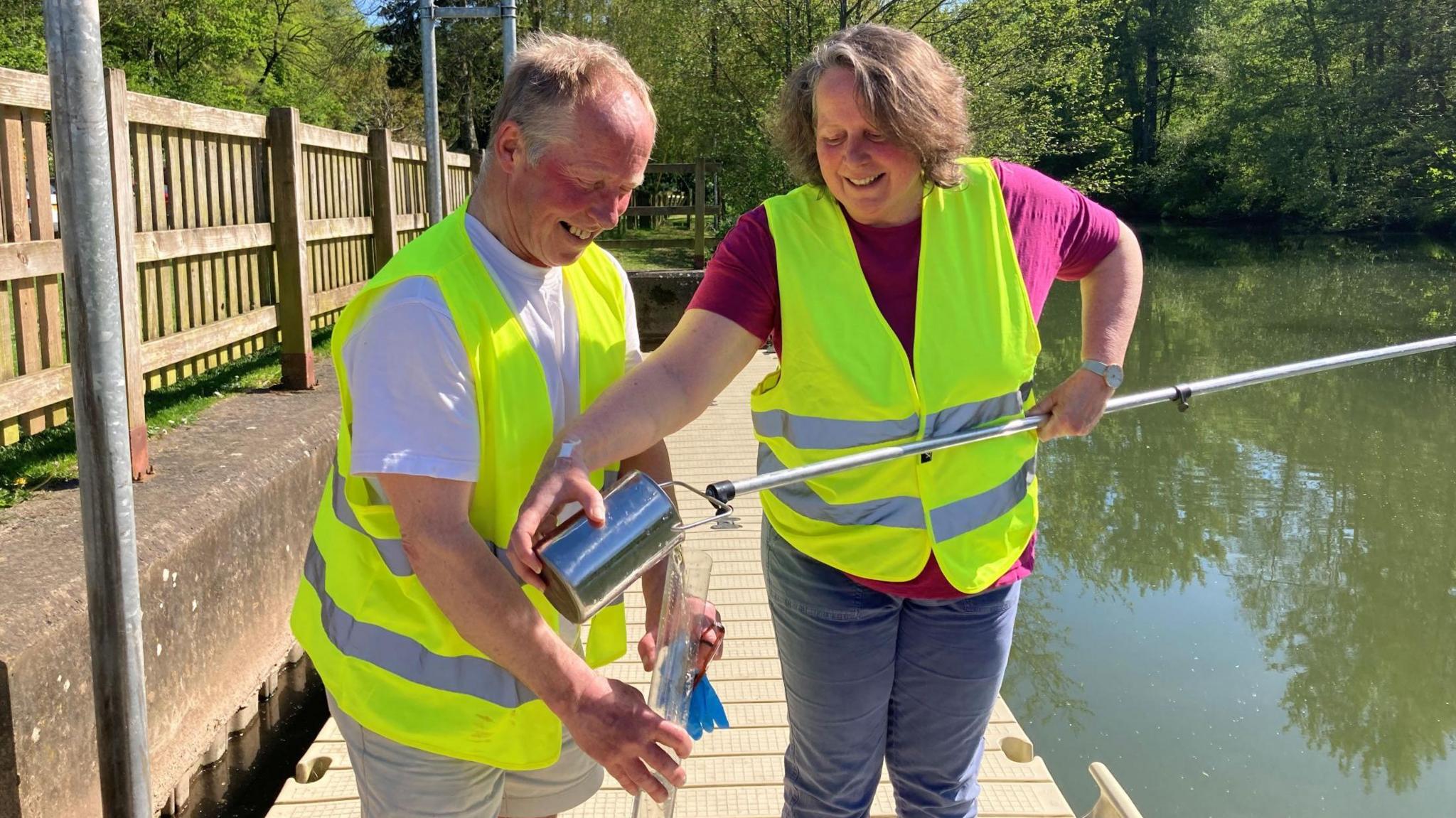
- Published3 October 2024
